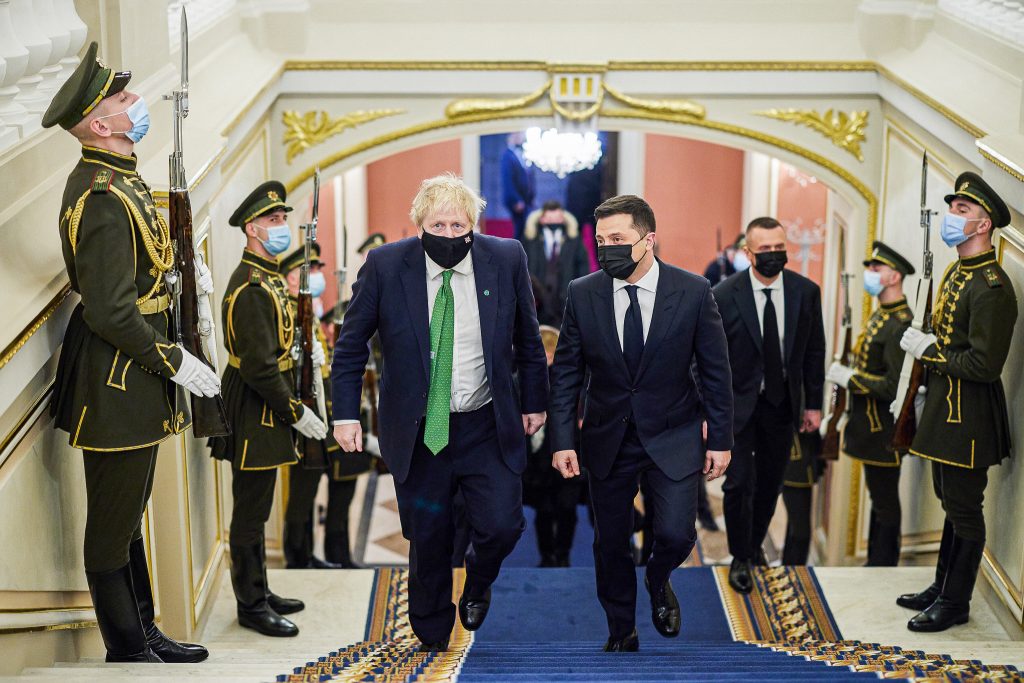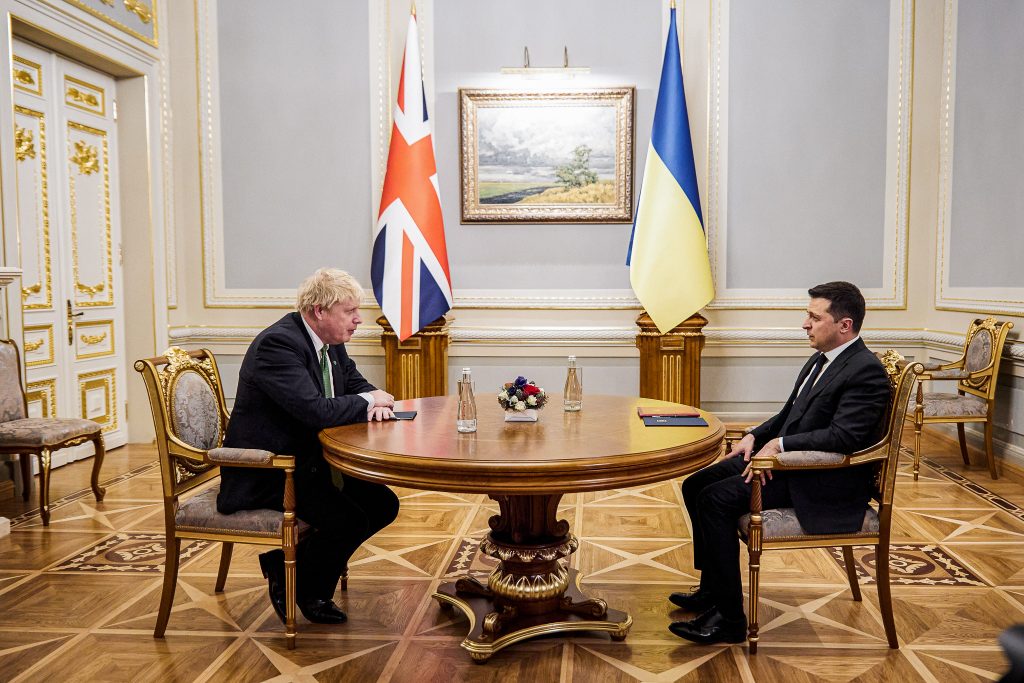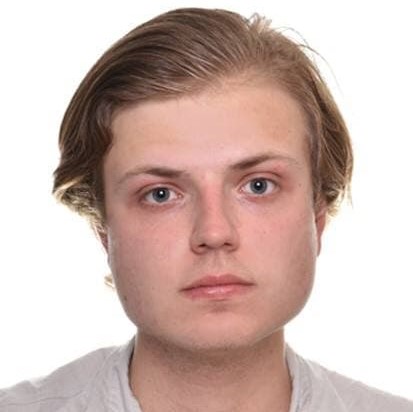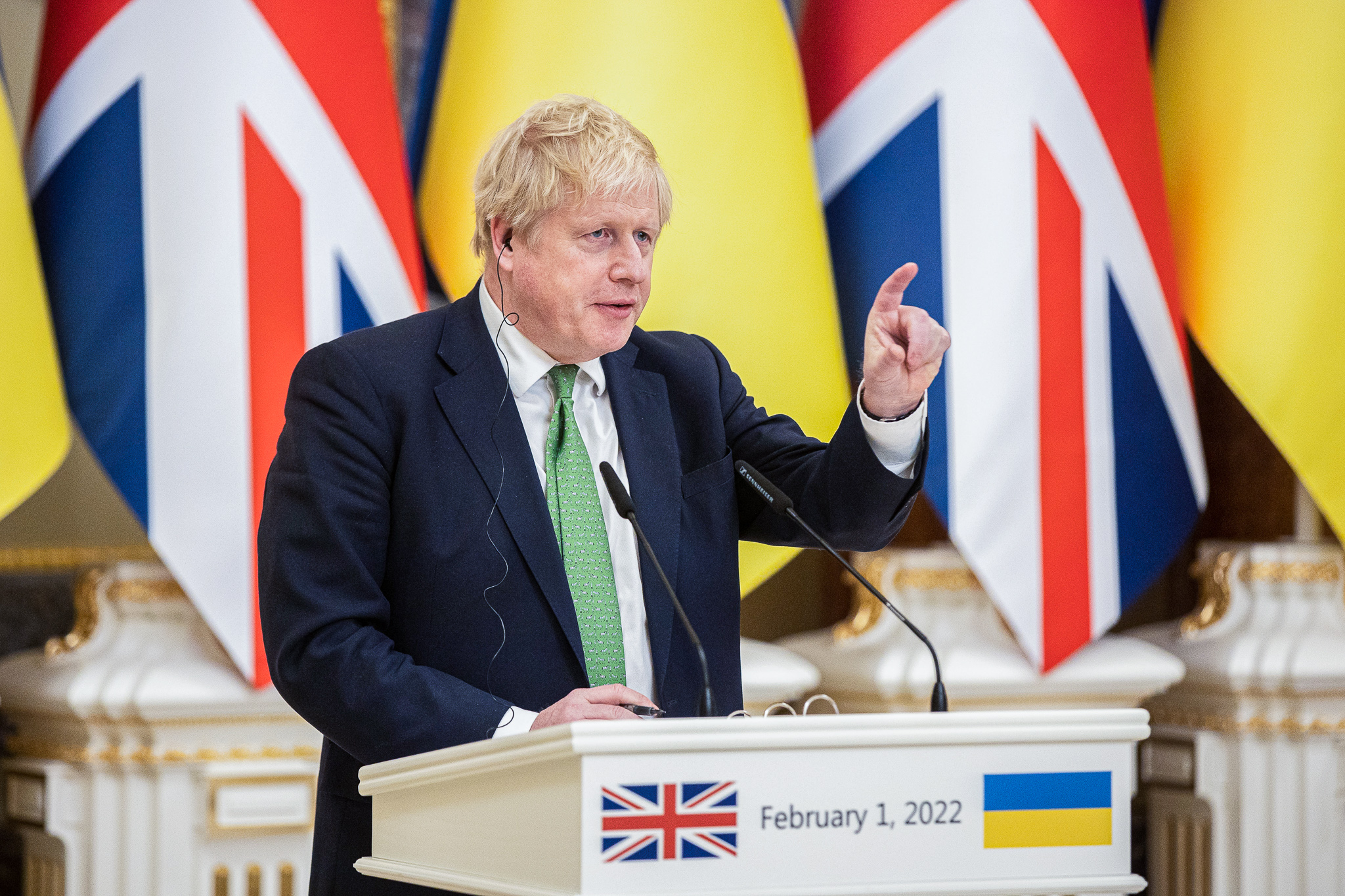The U.K. Prime Minister Boris Johnson said on Feb. 1 that his country would impose sanctions on the Kremlin “the moment the first Russian toecap crosses further into Ukraine."
During his joint press conference with President Volodymyr Zelensky, Johnson said that there would be “automaticity in how we apply these sanctions,” meaning that sanctions would be applied “the minute” there is a further incursion into Ukrainian territory.
He added this was also the position of the U.S. government.
Johnson's visit to Kyiv was highly anticipated by the local political elite. Amid the ongoing Russian escalation, Britain became Ukraine's toughest backer, boosting cooperation and supplying the country with arms.
Johnson said that new sanctions prepared by the Western governments would “pinpoint the strategic and commercial interests” of Russia.
The prime minister said that a further Russian invasion would be a “political disaster, humanitarian disaster, and … for Russia and the world, a military disaster.”
He added that there's still "a clear and present danger. We see large numbers of troops massing, we see preparations for all kinds of operations that are consistent with an imminent military campaign.”
Zelensky urged the West to apply sanctions on Russia before any potential further invasion would take place.
“Let's impose sanctions first, and then whether they stop Russia – we will see,” he said.

Zelensky had previously downplayed the imminence of full-scale Russian invasion, yet apparently changed his tone. When asked whether Western leaders were overstating the threat, he said “it’s hard to say who is exaggerating,” adding that “we have to prepare for bad things.”
Since November, Russia has elevated tensions on Ukraine’s border by massing over 120,000 troops along with tanks, artillery and other military equipment. Additionally, Russia has moved troops and equipment into Belarus, Ukraine’s northern neighbor, allegedly for joint training exercises.
Johnson said that the intelligence he had seen was “consistent with an imminent military campaign.”
The U.K government has been actively increasing Ukraine's defense capabilities over the past months.
Britain has provided Ukraine with 2,000 NLAW systems, the short-range anti-tank missile launchers, as part of the U.K.’s updated assistance package. Ukraine is also set to receive an additional $120 million in foreign aid from the United Kingdom in support of Ukraine’s “stable governance” and “energy independence”, according to a press release from Johnson’s office on Feb. 1.
Hours before meeting Johnson, Zelensky also announced the creation of a new “format of political cooperation” involving Ukraine, Poland and the U.K. in his address to Ukraine’s parliament.
Polish Prime Minister Mateusz Morawiecki, the country’s second-highest official behind President Andrzej Duda, attended the parliament session soon meeting with Prime Minister Denys Shmyhal and later Zelensky.

According to Foreign Minister Dmytro Kuleba, the new trilateral partnership will strengthen security and develop trade and readiness for concrete action.
“Warsaw, Kyiv and London don’t only understand the threats to European security and have a strategy to counter Russian activity, but also have great potential for trilateral cooperation in trade, investment and energy, including renewables,” said Kuleba.
Earlier, on Jan. 27, Ukraine’s parliament ratified a deal to get a loan worth $2.3 billion (1.7 billion pounds) from the United Kingdom and procure warships and key naval infrastructure. The agreement envisages a joint production of a frigate for Ukraine, as well as the support in installing new naval infrastructure.













